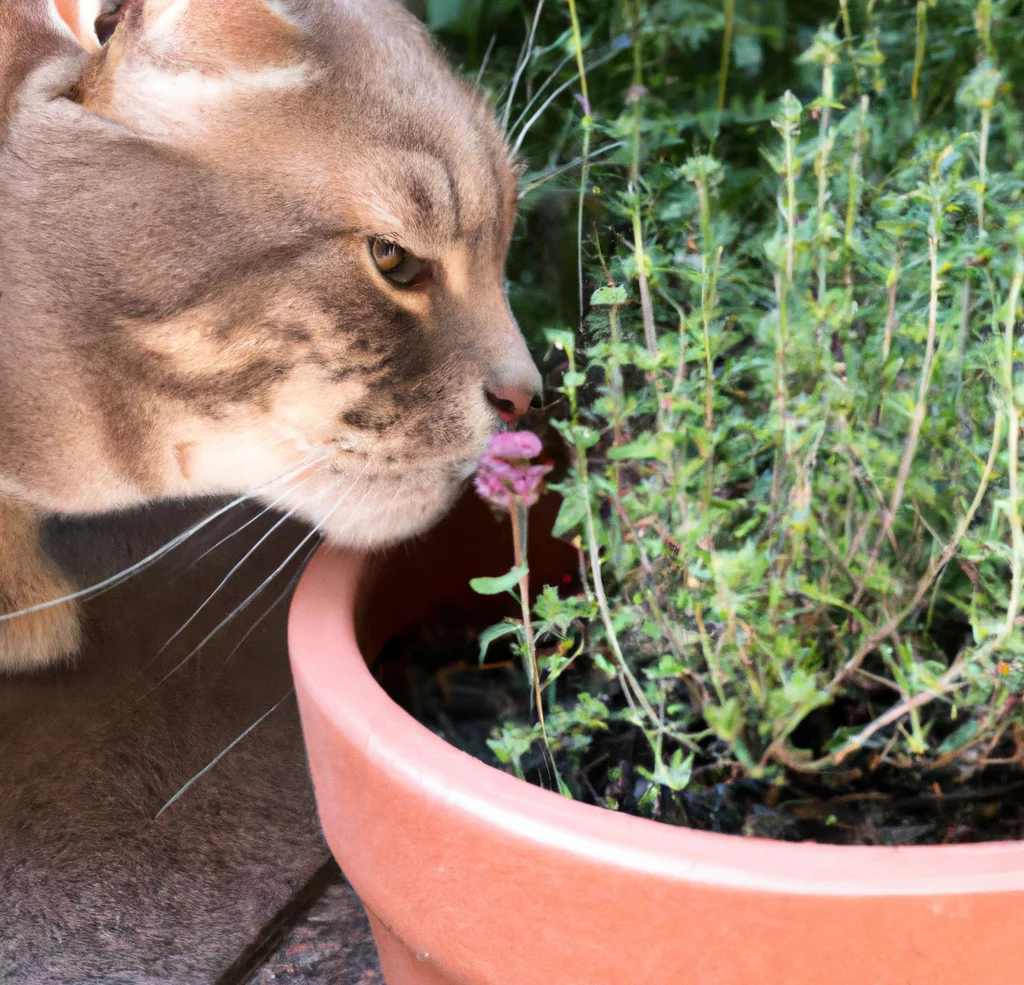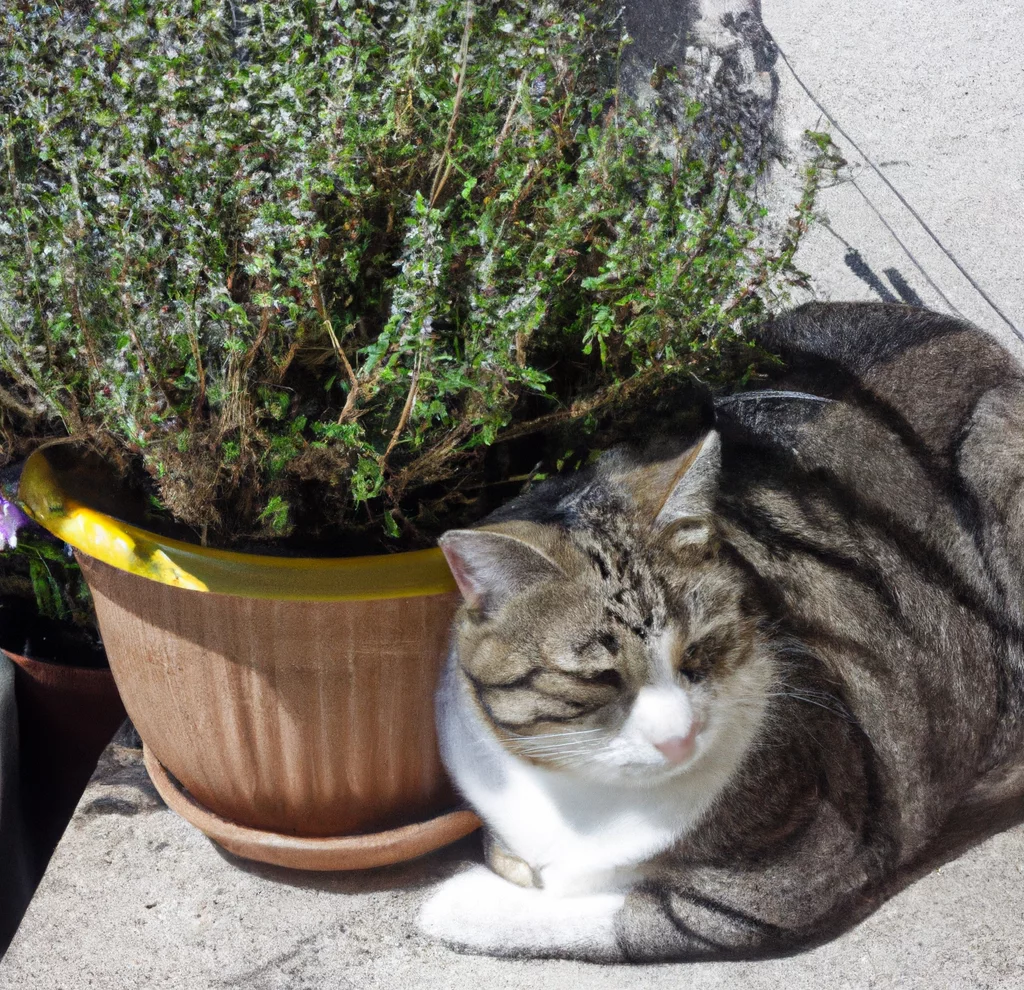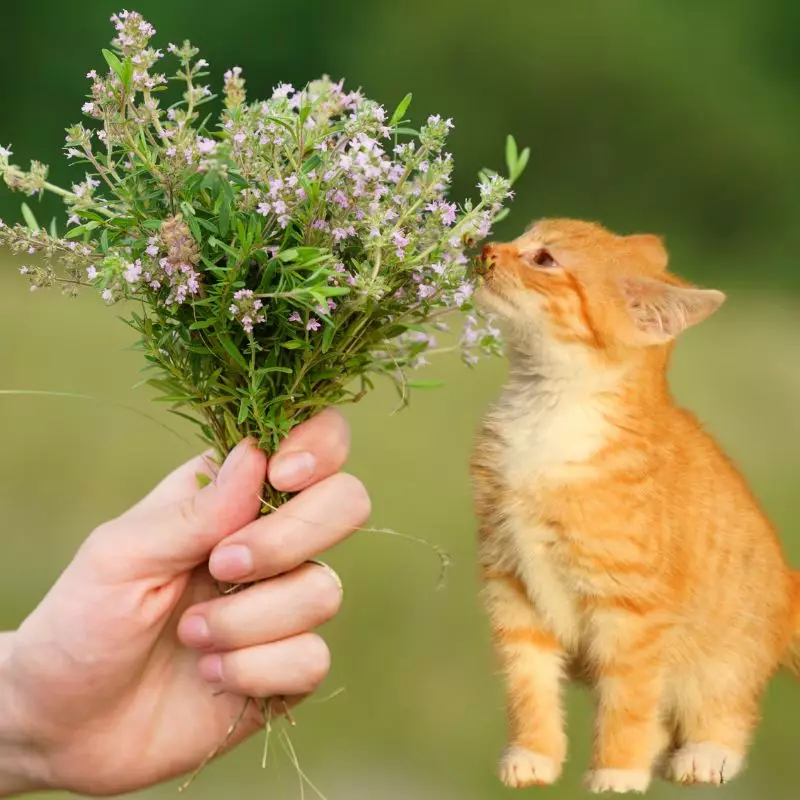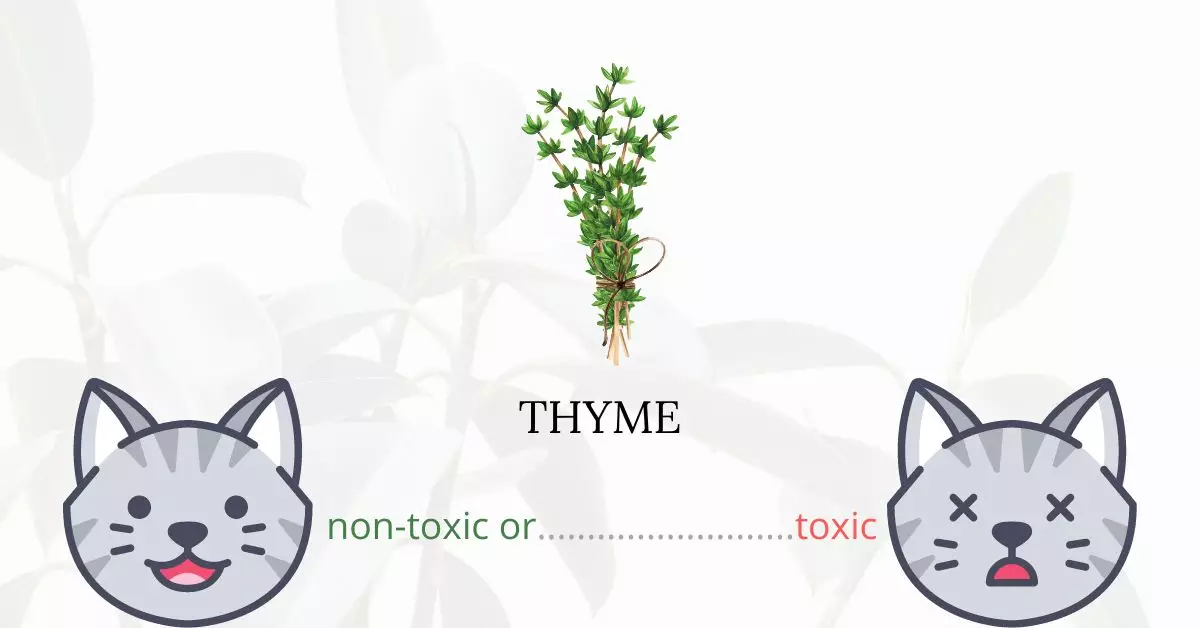Thyme is not poisonous to cats and is considered one of the safe herbs for our feline companions. In fact, the American Society for the Prevention of Cruelty to Animals (ASPCA) includes thyme in its list of non-toxic plants for cats.
This article was crafted in collaboration with a team of experienced DVMs (doctors of veterinary medicine). Their valuable insights and expertise ensure that we provide accurate and up-to-date information regarding the potential risks associated with various plants, focusing on thyme in this context. Moreover, we have also cross-referenced our findings with high-authority websites such as ASPCA and PetMD to guarantee comprehensive and reliable data.
Can Cats Eat Thyme?

Yes, can eat thyme in moderation. Start with small amounts, as you should with any new food you give your pet. Your cat can benefit from the wonderful health advantages of this herb if it is used sparingly. The flavor and fragrant aroma that this herb adds to your cat’s food will be savored and appreciated by your cat.
Add some chopped fresh or dried ones as a garnish to your cat’s preferred dry or wet food. To keep your cat safe and healthy, choose ones that haven’t had herbicides or pesticides sprayed on them. Alternatively, you could decide to feed your cat a pet food enriched with thyme.
Do not use or administer thyme oil to your cat without first talking to your veterinarian. Because cats are small and do not possess the same liver enzymes as humans, essential oils, whether applied directly to fur, paws or breathed in through diffusers, can be extremely harmful in small dosages for them.
What is Thyme?

Thyme is a 30-70 cm tall flowering plant from the labyrinth family that is popular in southern Europe.
It can be a short-lived ground cover in the garden, but it can be easily propagated from cuttings. It is also the primary source of thyme, which is used in cooking and as a herbal remedy.
The three essential components in thyme are thymol, carvacrol, and eugenol. German experts claim that of the three essential thyme components, thymol and carvacrol are crucial in enhancing the respiratory tract’s resistance to viruses and bacteria.
For ornamental uses, many cultivars and hybrids have been developed. Different thyme varieties have different leaf shapes, colors, and essential oils.
Keeping Cats Away From Thyme

Thyme has a strong scent that can drive away cats. Thus, it is less likely that your cat will take interest in your garden thyme.
However, if you need to deter cats from your other houseplants, you can try covering your plants with a lot of row covers. If they are securely fastened, your cat will avoid those plant beds.
One of the things that cats despise is getting wet. If you catch your cat gnawing or nibbling on your plants, you may try spraying water on them using a water hose, water gun, or a water sprayer. This method will make them realize that they are not welcome near your plants.
Plants to Avoid For Your Cats
If you are a cat owner and unsure if the plants growing in your yard are harmful to your cats, check out this list of toxic plants for cats. You can also check our list of non-toxic plants for cats.





